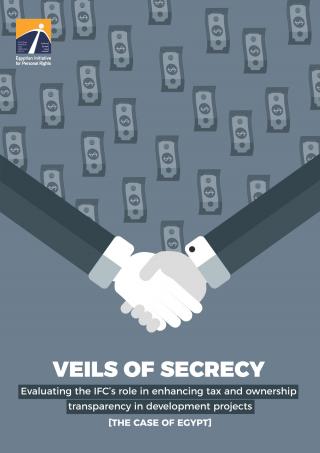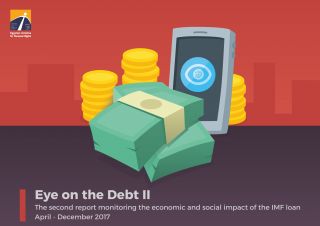The report, issued by the Egyptian Initiative for Personal Rights, aims to monitor the measures imposed by the loan program and their impact on the economy, both positive and negative. It also identifies the measures the government failed to carry out and attempts to offer alternatives that are less onerous for the public, especially low-income groups.
Files: International Financial Institutions
The IFC has been operating in Egypt since 1995 and has worked with dozens of different companies across different sectors, mainly through lending or holding equity in the investee company, as well as by providing technical support. We have found through our research that the IFC invests in operations that are deeply involved with some of the most secretive offshore jurisdictions in the world, where information about the real owners of these companies is in many cases obscured.
Under the terms of the IMF program and the first review report issued by IMF experts in September 2017, the Egyptian government was obligated to carry out 17 measures to address economic problems in the period from April to December 2017.
This is the first report on the implementation of the economic adjustment program, agreed upon by the Egyptian government and the International Monetary Fund as a condition for Egypt’s receipt of $12-billion loan under the Extended Fund Facility, to be disbursed in six tranches. Egypt will receive each tranche of the loan after a team of IMF experts confirm that the Egyptian government has complied with the terms of the agreement within the specified timetable.
Five objections: what is the problem with the World Bank loan?







